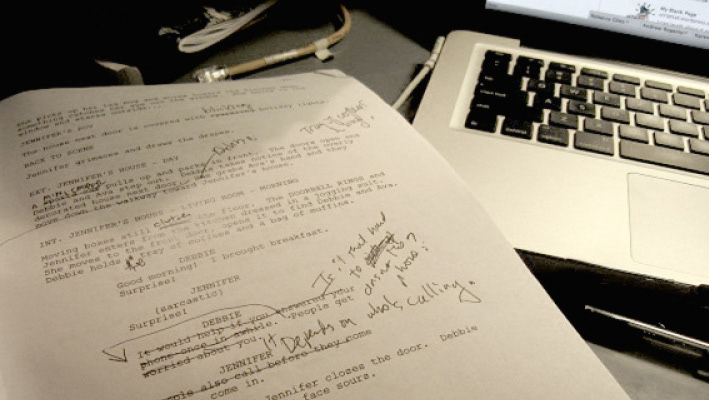The title for this particular posting has almost nothing to do with the subject matter, however we will soldier forth anyway because, frankly, it's catchy and it's fun to read.
This post will be about the delights of narrative and how they work and breathe life into what would otherwise be chunks of words that are utterly meaningless and without intrigue.
Narrative, in my current understanding, is the same as a river. If it doesn't flow, it isn't worthy of the name. That being said, there are narratives that are quite stagnant and easily tossed aside with disinterest, much like week old Chinese food.
The narrative that will be looked at today is one of particular fondness for myself, the writer. It, simply, is an episode of House M.D entitled "Three Stories".
With this particular episode being quintessential for the series, and the backstory of House, it seemed like an appropriate avenue to explore, hopefully without getting lost down the black hole that is lore.
So, the narrative is fairly easy to follow, Cuddy wants House to take over a lecture from another doctor who called sick, he eventually agree, and the lecture begins with the telling of three stories about three patients, all with similar symptoms; leg pain.
One patient was a farmer who claimed to be bitten by a snake, who later turned out to be bitten by a dog. Another was a volleyball player who suffered from acute onset leg pain during a volleyball match. The final, disguised as Carmen Electra for what can only be assumed as fan service, was a golfer who exhibited leg pain and drug seeking behavior.
One ended up with a full recovery, one with amputation, and the third ended up being House, who ended up with a partial recovery of chronic pain from an untreated infarction in his thigh.
Within these three stories, a narrative develops. It's one that gets developed both by the viewer and the medical students that House is lecturing. The narrative is simple, that the usual suspects are the usual suspects because sometimes things happen unusually.
Now, because this particular narrative is being sewn throughout the episode, with breaks to follow other sections of narrative that are pertinent to the overarcing story of the series, it's a bit odd to dissect without really paying attention to it, so I invite you to watch it yourselves if it interests you.
Now, because this particular narrative is being sewn throughout the episode, with breaks to follow other sections of narrative that are pertinent to the overarcing story of the series, it's a bit odd to dissect without really paying attention to it, so I invite you to watch it yourselves if it interests you.
Now, David Shore, one of the creators of House, wrote this particular episode and it has been hailed as one of the best, but it does show us an interesting way of showing a narrative. One that is both simple and complex while being completely essential to the character but not the story that spans the rest of the series. We sit there alongside those medical students in the episode and wonder the similarities of the cases to House, and wondering if one is actually House without it being made evident as there isn't any delve into the injury that House has before this episode.
On that rather odd, yet final note, we end the third post.






